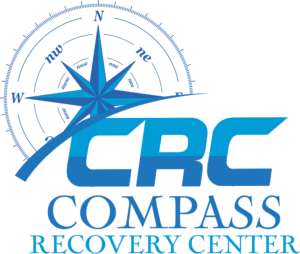Eye Movement Desensitization and Reprocessing, commonly known as EMDR, is a therapeutic approach that has gained a lot of attention in recent years for its effectiveness in treating trauma-related disorders. However, its benefits extend far beyond trauma resolution – it has become a helpful and well-regarded tool in addiction recovery and mental health treatment. Read on as we break down the multifaceted impact EMDR can have on overall well-being.
What is EMDR?
EMDR was developed by Francine Shapiro in the late 1980s and has since evolved into a widely utilized psychotherapeutic technique. The core of EMDR involves bilateral stimulation, which is a fancy way of saying that the therapist will guide the client’s eye movements or use taps or sounds to stimulate both sides of the brain. This unique process facilitates the brain’s natural ability to process and heal from distressing experiences.
The Role of EMDR in Addiction Recovery
Addiction usually involves underlying traumas or unresolved issues. EMDR serves as a powerful tool in addiction recovery by offering a method to address these root causes. By reprocessing traumatic memories, individuals can experience a reduction in the emotional charge associated with those memories. This, in turn, offers some freedom from playing out painful past dynamics can diminish the need for self-destructive coping mechanisms.
EMDR and Mental Health Treatment
Beyond addiction, EMDR is widely utilized in the treatment of various mental health conditions, including anxiety, depression, and post-traumatic stress disorder (PTSD). The therapy helps individuals process distressing memories, allowing for a more adaptive and less emotionally charged understanding of past experiences. This, in turn, contributes to improved mental health and well-being.
The EMDR Process
The EMDR process typically involves several phases. After establishing a therapeutic rapport, the therapist works with the individual to identify target memories or events to process. Through bilateral stimulation, the therapist guides the client in reprocessing these memories, fostering adaptive resolution. As the therapy progresses, individuals often report a notable reduction in the emotional intensity associated with targeted experiences.
Why Choose EMDR at Compass Recovery?
At Compass Recovery, we integrate evidence-based therapies like EMDR into our comprehensive treatment approach. Our skilled therapists work collaboratively with individuals to address the interconnected challenges of addiction and mental health. By incorporating EMDR, we aim to empower individuals to overcome the barriers that hinder their recovery journey.
At Compass Recovery, we understand the importance of addressing the underlying factors contributing to addiction and mental health challenges. Through the integration of EMDR and other evidence-based modalities, we strive to provide holistic and effective care that supports individuals on their path to lasting recovery.
To learn more about EMDR and the other evidence-based therapies we offer, reach out.

